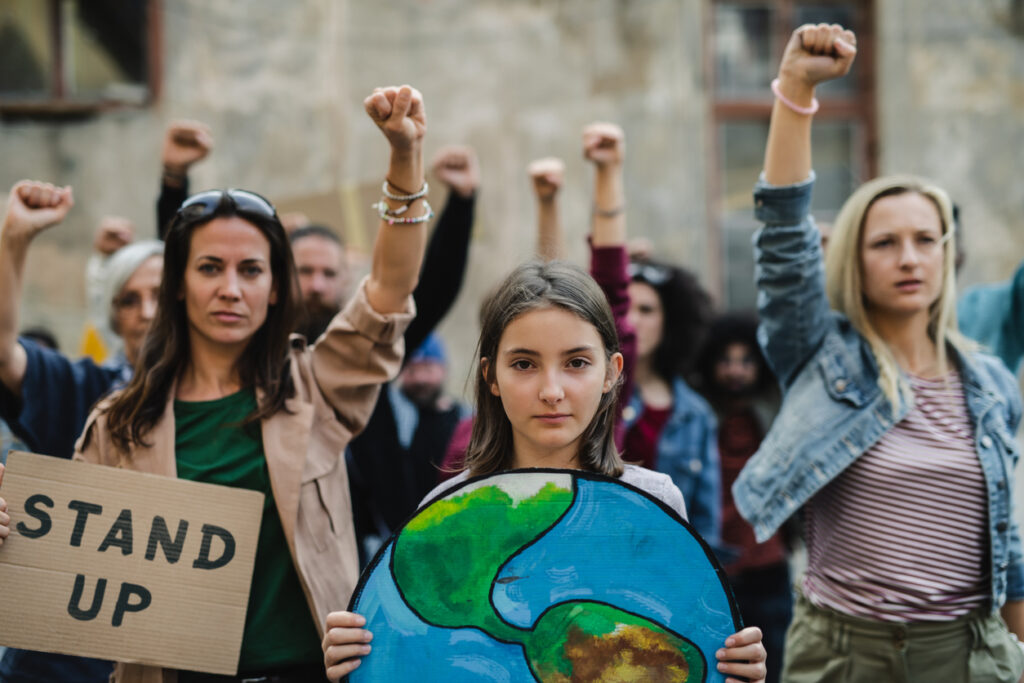In November 2021, the UN Climate Change Conference of the Parties (COP26) took place right here on our own shores, in the great city of Glasgow.
Despite its physical proximity and plenty of media coverage, you’d be forgiven for feeling that the decisions coming out of that conference centre may never noticeably touch your life. Global leaders discussing policies and promises seems a world away from how most of us lead our lives.
The unfortunate truth is that the climate crisis will, and already does, affect us all.
Whether we’re aware of it or not, we are universally connected to everyone at the conference through the broader subject matter of the COP26: the fate of our collective well-being, the health of our world, and the future of life on this planet. This means that the COP26 does touch our lives. And we need to join the conversation.
Politics may not seem like an appealing entry point. You may not feel called to campaign for the Green Party, to retrain as a geoengineer, or to quit and become an entrepreneur or a full-time activist. I’m not suggesting we do any of that. My suggestion is that we start these conversations much closer to home, particularly as HR professionals.
In reality, the biggest impact that many of us experience in the face of this crisis will be an emotional one.
Your colleagues may already be turning to the HR department for support in this area.
Looking to shift focus within the company to something more purpose driven? Considering going part-time? Heading towards burnout? Of course, there are many underlying causes for these changes but we cannot underestimate how much the state of the world (and the state of the climate) might influence decision making, even on an individual level.
A constant stream of bad climate news can lead to excess stress, anxiety and feelings of hopelessness. We are currently living through a climate crisis, and a global pandemic, not to mention the everyday stressors that all humans face in the workplace and beyond. I, for one, am not surprised that workers feel compelled to change something.
In reality, the biggest impact that many of us experience in the face of this crisis will be an emotional one. The future is uncertain, and that can generate a full range of emotions that we may not feel equipped to deal with.
Working in close contact with all employees, HR professionals are uniquely positioned to offer support on this front, to open up a space for reflection and processing, to start a conversation. This can happen through training programmes, events, workshops, or much more casual conversations.
Here are my tips for HR professionals who want to bring the climate conversation to their workplace.
-
Build a welcoming space
If the climate crisis is not a usual discussion topic in your workplace, many people may never have had the chance to voice how they’re feeling. Creating a space where they feel comfortable to do so could be the first vital step in their journey towards climate action.
In many environments, climate can be a very tricky subject to broach because it feels prickly, personal and political. My advice would be, name it as such. As soon as you acknowledge the difficulty of a topic, some of the difficulty already dissipates.
It is also important to acknowledge that, given the nature of the topic, there will undoubtedly be varied opinions in any group. The idea of opening this conversation is to allow individuals to express themselves and to feel heard. It does not have to be a space for debate.
If you’re unsure about facilitating such a discussion, there are a number of resources you can find through the Art of Hosting community.
-
Take it seriously
Avoid the urge to rush these conversations or fill them with platitudes. We’re talking about the future of humanity here: it deserves time, focus and consideration. What’s more, people are affected by this crisis to differing degrees and a few loud voices claiming personal conviction is not an indicator of an anxiety-free group.
Consider this an ongoing movement to support the health and future of your workplace. It will require continuous attention, rigorous follow-up and regular check-ins.
For inspiration to maintain momentum, I recommend the weekly Climate Emergence blog.
-
Discover your collective needs
Who’s to say what the outcome of these conversations will be. One goal worth aiming for is gaining an understanding of what you and your colleagues really need. Easier said than done. This really is a learning process and it may take a lot of time to find a way in. Needs will naturally vary and shift over time, and you honestly may never feel that this goal has been fully achieved.
Small wins on this front can mean a lot. Maybe your colleagues feel they need more support to tackle the low-hanging fruit of climate action (eg effective recycling, more sustainable transport, vegan catering options etc).
Perhaps they want to be involved in developing the climate vision of the company. It could be that they want more chances to share and process as a team. Maybe there’s a particular area in which they feel the need for more training. The possibilities are endless.
Remember: no one expects you to be an expert.
-
Seek out what you don’t know
The climate space can be daunting if you’re diving in as a relative newbie. That goes for you as well as your colleagues. Remember: no one expects you to be an expert. That said, it is good to lead by example, and informing yourself of current issues might be a good motivator for further action.
If you feel like you want to start with the basics, AimHi Earth has created a very accessible and entertaining climate course for professionals and aspiring changemakers at all levels.
-
Take care of yourself and each other
I started by saying this is an emotional topic, which means that it has the potential to drain your tank without you even realising. This work is often peripheral to main tasks and it can be a battle to keep up momentum and motivation. Do not allow yourself to become collateral damage in this fight.
The desired cumulative effect of these short suggestions is work that builds connections among colleagues in order to inspire climate action. Investing in the growth of communal support is essential for building resilience, on a personal and group level. Your professional community can be such a saviour in this work.
Increasingly, self-care within the workplace is being given the space it deserves. The Busy Optimists’ Collective offers bespoke self-care programmes to boost motivation, morale and wellbeing.
Let me know on Twitter how you address this topic in your workplace and what tips you would add to this list.
Want to know more? Check out HR’s role in tackling the climate crisis






